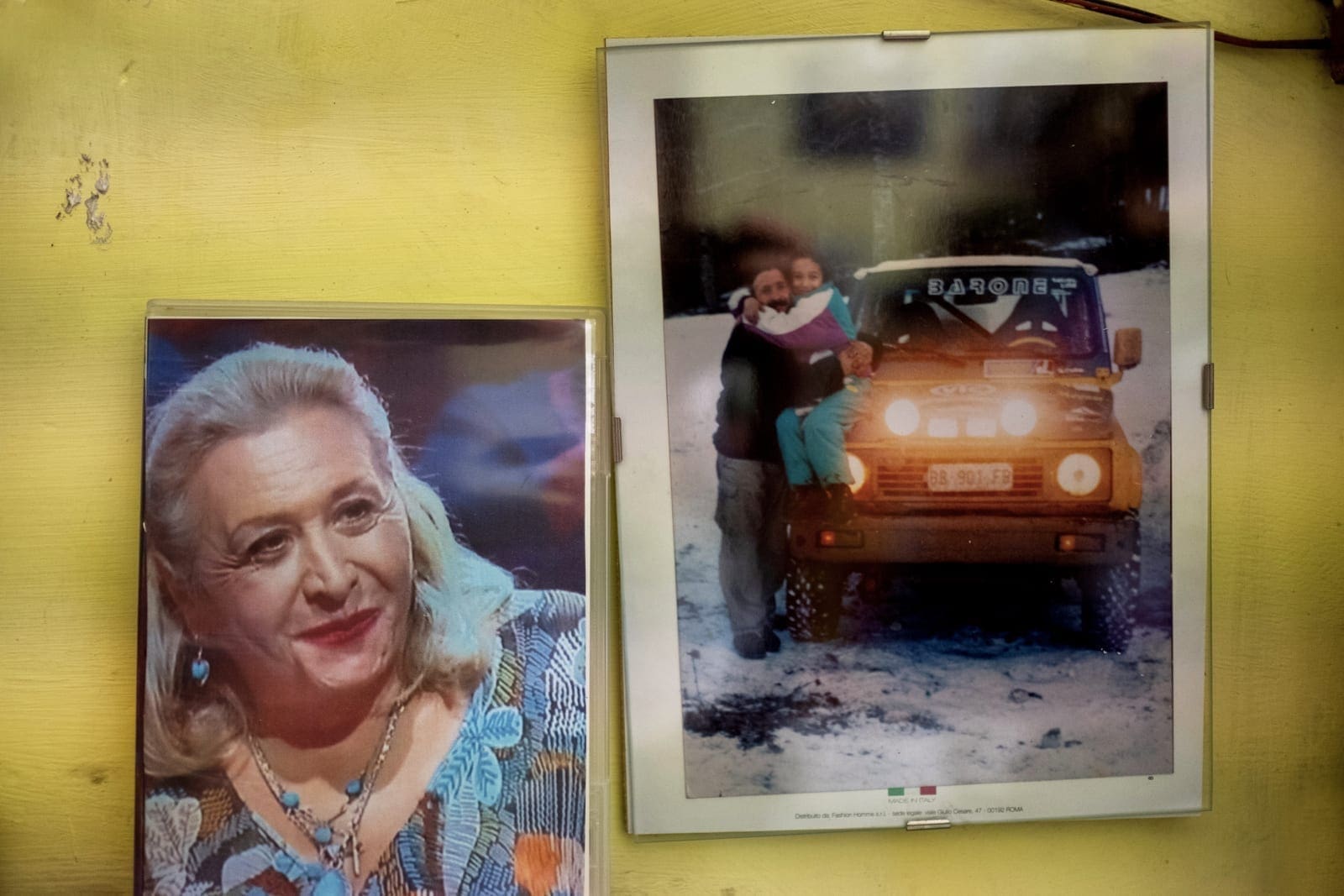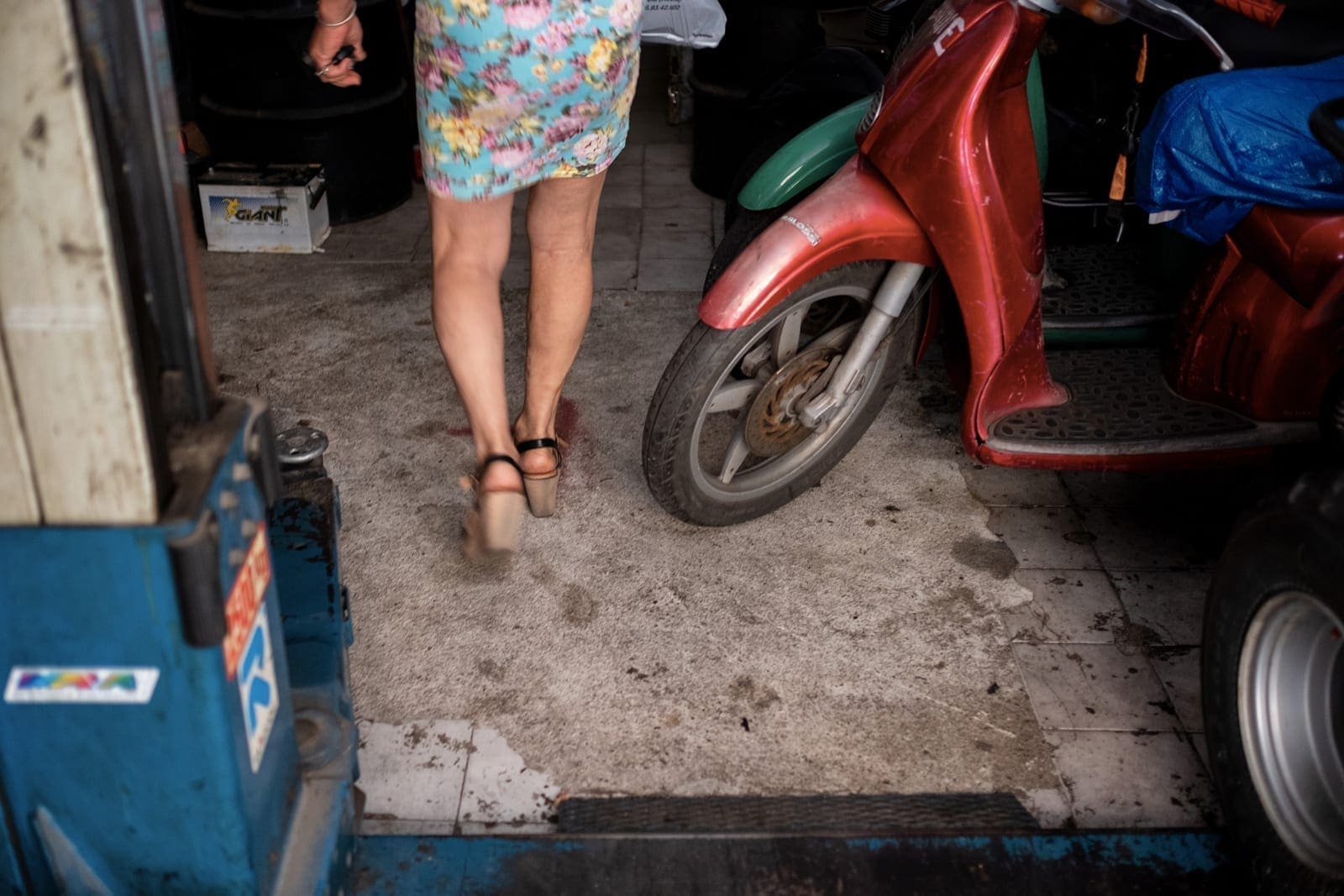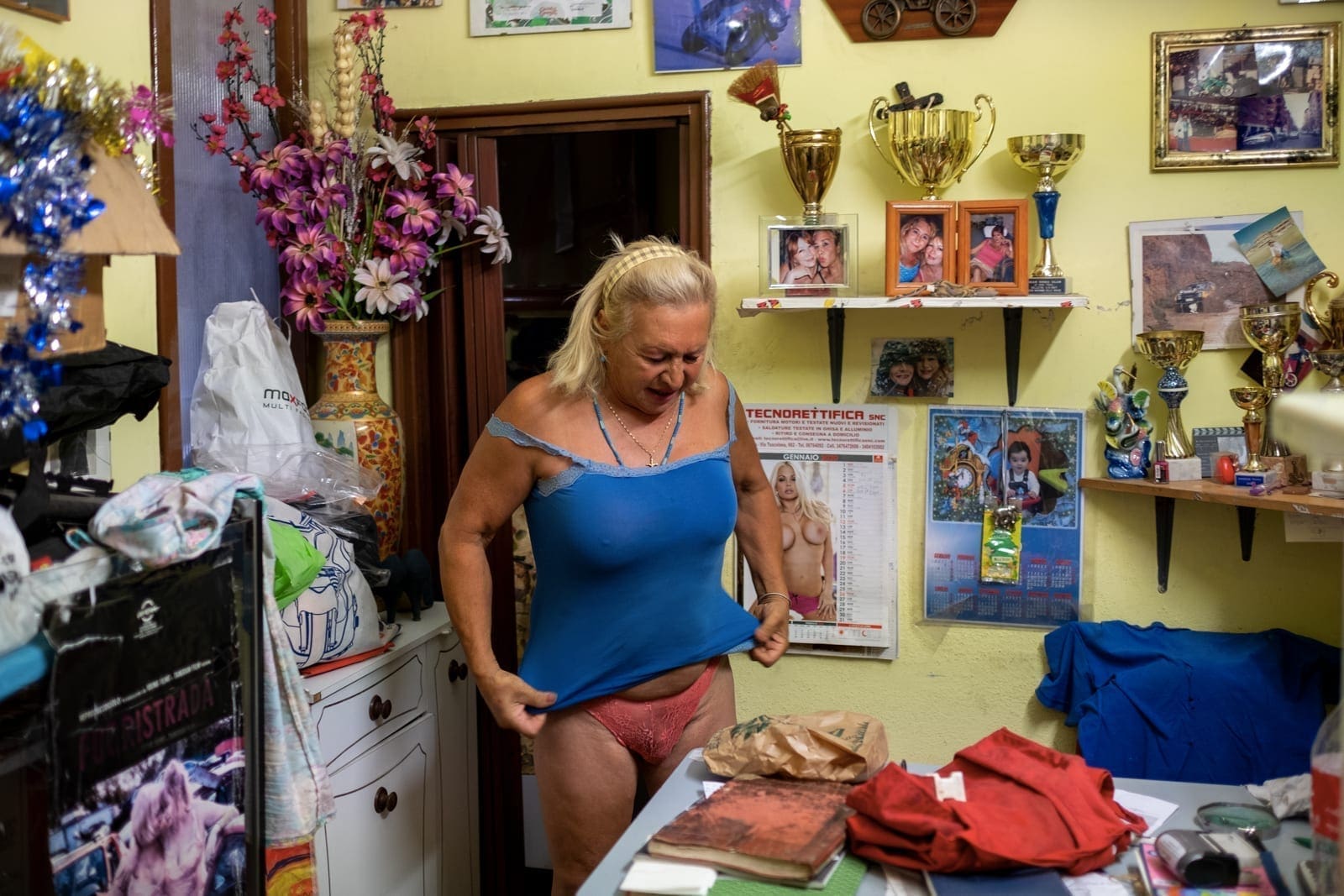“Hi, I’m Natascia, a photographer and … “
It almost sounded like Alberto Sordi; instead, these were the first words Beatrice addressed to me after introducing myself. A hoarse voice with a strong Roman accent, fuchsia lipstick, blond bob, rimmel, greasy hands with nails lacquered with polish, peeling, but strictly fuchsia too. This is how Giuseppe, a sui generis mechanic, introduces himself in his garage in Rome. He is called Pino by his old friends and Beatrice by everyone else.

Pino and Beatrice
Two in one, or simply one that makes for two.
A man and a woman at the same time, in his choices and his body. He has a 65-year-long and rather troubled history, with three marriages behind him (two by Pino, one by Beatrice) and a daughter. He has always been fond of blondes and motors, the pivot of his whole life. An off-road racer, he was a multiple rally champion, a world in which he was known as ‘Girello the Phenomenon’ for his ability, more unique than rare, to turn himself around at high speed and return to the track as if nothing had happened.
Defining Pino-Beatrice is not easy, ‘I’m me‘ he would say if asked. And indeed, this is the case. Beatrice has kept everything of Pino, his hobbies, habits, tastes, work, sensitivity, strength, irony, and genitals, but in a wholly new and purely aesthetic guise. A blond hair has replaced her black curls; her little moustache has given way to fuchsia lipstick, not always perfect, but unfailing on her lips. No more pectorals but a generous fourth breast, which she shows off both at work and not, with extreme pride and ease. No more trousers, except for her red mechanic’s overalls, but skimpy and very colourful clothes, precisely like her life today.

As much courage as it took her – years – to adapt to the social and familial expectations linked to her anagraphic sex, as much as it took her to definitively set aside a fictitious life because she was a prisoner of a male body, especially in an environment such as hers, where the phenotype of the vulgar and arrogant male is always around the corner and in an unfriendly and difficult city such as Rome. Pino has lost some customers, but Beatrice earned a few new ones. It may be his myriad contrasts, not aesthetic ones, that intrigue, but Bea knows how to make himself liked. His origins as a bourgeois from San Basilio, who made his bones on the streets, are well marked today: rough manners, big voice, sullen gaze, unkempt appearance. Bea is someone who certainly doesn’t let you down! But in her way. Her answer is always ready and always the one you don’t expect: most of the time, she pulls out a ‘Roman-style’ joke that inevitably brings a smile to your face.
I am me, and that’s it
In the case of beautiful women (if blondes even better), she sings a few verses from the 1960s to win their hearts. To see her always busy between engines, mufflers and pistons, between a “mortacci tua” and “quelli de pippo” every 5 minutes, one would certainly not expect a romantic. Yet Bea constantly speaks of love, tenderness, sunrises, sunsets, and starry skies, and she does so while clutching Speranza, a dying foundling from whom she never separates herself, to whom she wanted to give a chance at a better life, just as she did with herself. “I am not transsexual, or transgender, as I hear of today and not even transvestite, I just know me,” she says bluntly and proudly. And looking at her, that seems to be the case. Beatrice is a man and a woman who merge without ever getting confused. “If I like lace lingerie and I like women, I don’t see what’s wrong with that,” she says, wanting to show that there is no gender, there is not necessarily a label to assign to someone based on their sexual orientation, how they dress, their work, their tastes.

No more humbleness, therefore, no more shame, no more violence to inflict on oneself, but to show oneself as Beatrice with very ordinary clothes, a bit of make-up and a florid bosom, while still being a father to his daughter, an excellent mechanic to his customers, a hypothetical companion to new love and finally feeling good. First and foremost, Beatrice is madly in love with a man, Pino, whom she badly needs to exist. Together they tell a story of love and courage: the love of freedom and the courage to go beyond form, beyond stereotype, beyond prejudice, where nothing is right or wrong, beautiful or ugly, male or female.

